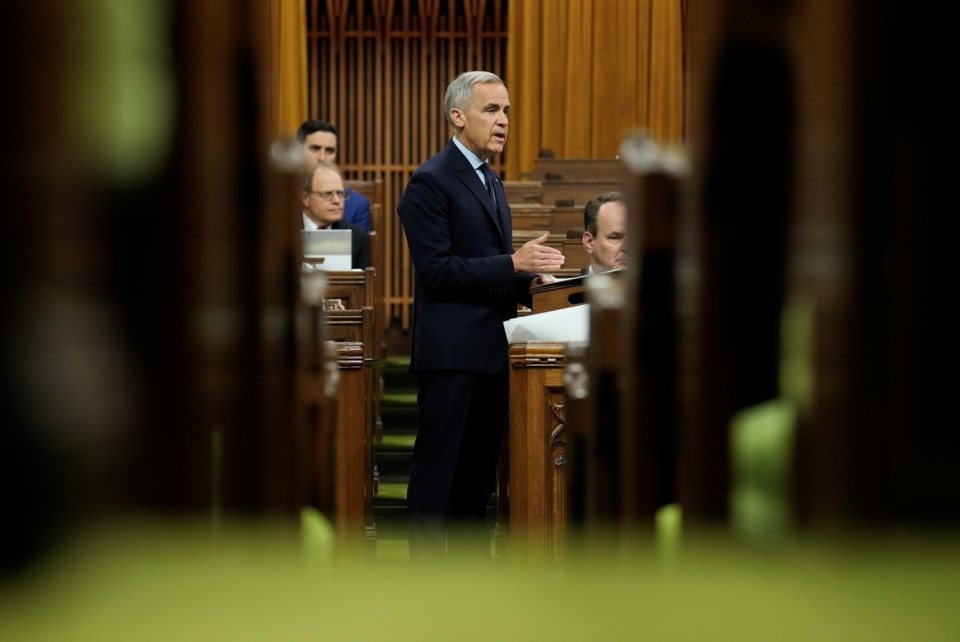Editor's Note: This article originally appeared on Parliament Today, a Village Media newsletter devoted exclusively to covering federal politics.
Prime Minister Mark Carney’s first moves in the new Parliament have some former MPs wondering about the future of social policies under his government.
Ex-NDP MP Peter Julian, former CPC MP Karen Vecchio and ex-Liberal minister Ya’ara Saks took part in a Pearson Centre webinar digesting the throne speech on Thursday, two days after King Charles III delivered it from Ottawa.
Julian spent over two decades on the Hill but saw his seat go to the Liberals in last month’s vote, while Vecchio was first elected in 2015 but did not run for re-election. Saks lost her seat to the Conservatives, previously holding the Mental Health and Addictions portfolio under Carney’s predecessor, Justin Trudeau, before the file was dropped from Carney’s cabinet in March.
It’s a reality that Saks acknowledged, noting there was a “lion’s share of work done” this year to, for example, bring in the Youth Mental Health Fund worth $500 million over five years. She said the measure was pushed through to the Treasury Board and is now “in the works,” but admitted it may not go far enough to address a mental health crisis younger Canadians are facing.
“My philosophy is always that good social policy drives good economic policy,” Saks said, adding the throne speech referred to “foundational work” on files like pharmacare and child care.
“Those things are in place and they're not being taken away. Will it be enough on the go-forward? Time will tell,” she added. “It is the beginning and certainly not the end.”
In the speech, the government promised to “protect” these existing programs while touting a recent expansion of the dental care regime, though Julian argued there was a “notable lapse” in referring to pharmacare — a file his party forced the Liberals to implement under Trudeau.
“The operative word was maintaining what exists now, and what exists now is only the first step,” Julian said.
Under the current pharmacare program, the feds have vowed to cover diabetes medications and contraceptives, inking deals with three provinces and one territory thus far. The NDP has long argued the program should be expanded to capture more medicines as Canadians struggle with a health-care system in crisis.
“For Mr. Carney to signal clearly in the throne speech that he is not moving forward with the next stage of pharmacare, which would include a whole range of other life-preserving essential medications, I find that profoundly disappointing,” Julian added.
He noted that a government committee report on the operation of a possible universal pharmacare program is expected in October, to be received by rookie minister Marjorie Michel, who was handed the Health file earlier this month.
Pearson Centre CEO Pam Damoff, a former Liberal MP who did not seek re-election, moderated the webinar.
She noted the Disabilities portfolio was also dropped from Carney’s cabinet, and the throne speech had no mention of helping this cohort, despite persistent concerns that the government's Canada Disability Benefit (CDB) is not enough.
Passed into law in 2023, the $6.1 billion program is supposed to begin doling out up to $2,400 annually to eligible recipients starting in July, with Ontario recently promising not to claw back the benefit. The feds plan to table a proposal exempting the benefit from being treated as income under federal law to prevent clawbacks in all provinces, though Finance Canada remains mum on the timeline.
Saks said the government’s response during the height of the COVID-19 pandemic in 2020, when Ottawa’s focus was distributing the Canada Emergency Response Benefit (CERB), was “sort of this litmus test, or this kind of dry run, of what guaranteed basic income could look like.”
“That’s where the conversation really needs to go when we’re talking about people living with disabilities. We haven't unpacked that in a really profound way,” Saks explained, referring to clawbacks.
“We tend to work piecemeal in this federated system of adding on here and chopping up there. I would really like to see us, just like we’re trying to lower interprovincial trade barriers and create one system, look at benefits like these through the lens of a guaranteed basic income, which would change the playing field for so many Canadians."
For Julian, how Canada treats those with disabilities is a question of social and economic justice.
He said the lack of reference to vulnerable populations in the throne speech, compounded by the lack of a Disabilities minister, is “profoundly disturbing.”
“This is really the next step in terms of social policy that is also smart economic policy,” Julian said, noting NDP MP Leah Gazan tabled a bill in the last Parliament on a framework for a guaranteed livable basic income that died on the order paper.
“We have legislation that is there, what we need is the will and the leadership to actually take on this issue.”
While Carney has vowed to put a focus on fiscal discipline, Julian argued the Liberals should avoid paring down social programs and cutting the public service, and instead focus on reining in spending on "corporate outsourcing,” consultancy fees and fossil fuel subsidies.
Those savings should be used to “enhance” public programs, he said.
In the speech, Carney promised to balance the government's operating budget over the next three years by curbing duplication, using AI to boost public sector productivity, and “capping the public service.” He said the feds’ operating budget has been growing by nine per cent each year, a number the PM wants to bring to under two per cent — though details remain murky on how he will get there.
